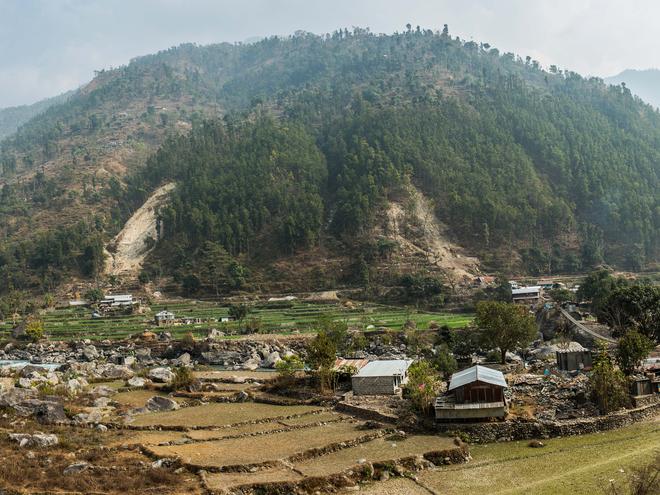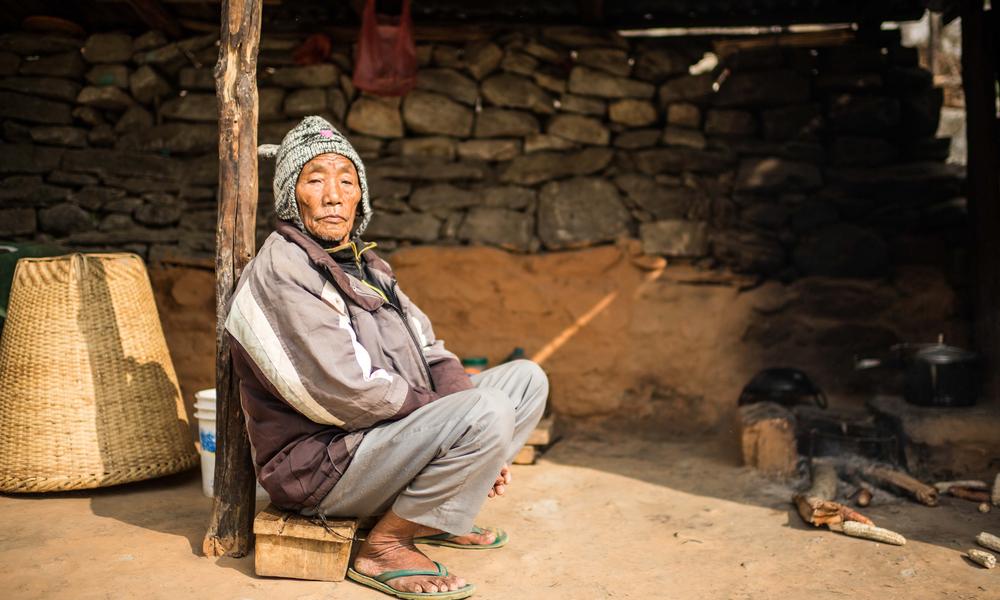
Last April, Nepal experienced a devastating earthquake, resulting in a tragic loss of life and damage. But the people of this small and beautiful country are pushing forward with remarkable resilience. They’ve also taken care to consider the environment during the rebuilding period.
WWF’s Environment and Disaster Management program is lending a hand by working to reduce risk and vulnerability for people and the environment. The government of Nepal requested our assistance to conduct an assessment of the environment in order to better understand the direct impacts of the earthquake on the environment, and the potential indirect impacts of the disaster recovery and reconstruction processes.
The report, funded in part by USAID and released in February, revealed several direct impacts: local water supplies that were altered by the earthquake, forest cover that was lost due to landslides, and the release of hazardous materials due to damaged infrastructure, to name a few.
In order to be more resilient to future disasters Nepal can reconstruct in a way that will not over-exploit Nepal’s natural resource base or damage ecosystem services. Healthy ecosystems provide the basis for local livelihoods and sources of energy and water, and thus are an important local safety net. Nepal can build back safer by utilizing environmentally responsible practices such as ensuring building materials are responsibly sourced, reusing debris, improving solid waste management, and promoting water source management that takes increasing climate variability in to account.
 © WWF Nepal, Hariyo Ban Program/ Samir Jung Thapa
© WWF Nepal, Hariyo Ban Program/ Samir Jung Thapa © WWF Nepal, Hariyo Ban Program/ Samir Jung Thapa
© WWF Nepal, Hariyo Ban Program/ Samir Jung ThapaA history of green recovery in Nepal
WWF has worked with government and communities in Nepal to support disaster response prior to the earthquake.
In 2014 the local partners in the WWF Hariyo Ban project—an initiative that helps communities reduce the negative impacts of climate change on people and wildlife—suffered devastating floods. As a contribution to the disaster rebuilding process, WWF provided training to local communities and government through our Green Recovery and Reconstruction Toolkit, developed in 2010 by WWF and the American Red Cross. Participants in the flood training remarked that Nepal would be able to use this new green rebuilding approach should the long predicted major earthquake hit Nepal. With the green recovery experience on hand, the government of Nepal knew it could turn to WWF for help.
Access to help 24/7
Early on in the earthquake recovery process we were contacted by individuals working in educational organizations in Nepal rebuilding schools. They asked about spatial planning and what building materials could be used to ensure that extraction of building materials would not create future disaster risk. Requests such as these inspired us to create the Environment and Disaster Management Help Desk. Borrowing a page from medical specialty play books, the Help Desk is an online platform that provides a 24/7 call feature so anyone in the world at any time can reach an experienced advisor to discuss challenges and questions regarding the environment and rebuilding. Our global team of advisors can provide on-the-spot guidance and suggest further learning resources or literature. The Help Desk will use information and lessons learned from participant experience to continually develop and promote better practices in considering the environment during disaster response, and reducing the risk of impact for future natural disasters.
The Help Desk is now supporting rebuilding of Fiji after Cyclone Winston and, as 90% of disasters are climate related, we know that unfortunately extreme events will increase in scale and scope impacting people and the environment across the globe.
Due to past disaster response experiences and contributions to the rebuilding of Nepal, we now have hope for a healthy and safe way forward for both people and the planet when natural calamities occur.
Enviroshop is maintained by dedicated NetSys Interactive Inc. owners & employees who generously contribute their time to maintenance & editing, web design, custom programming, & website hosting for Enviroshop.
